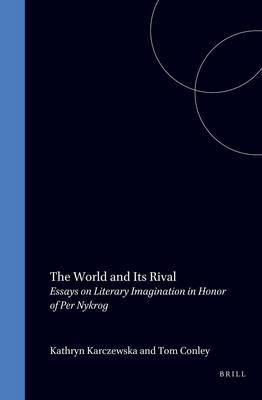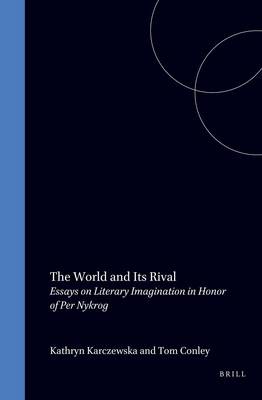
- Afhalen na 1 uur in een winkel met voorraad
- Gratis thuislevering in België vanaf € 30
- Ruim aanbod met 7 miljoen producten
- Afhalen na 1 uur in een winkel met voorraad
- Gratis thuislevering in België vanaf € 30
- Ruim aanbod met 7 miljoen producten
Zoeken
The World and Its Rival
Essays on Literary Imagination in Honor of Per Nykrog
€ 201,45
+ 402 punten
Omschrijving
This volume assembles a wide range of scholars and critical methodologies to suggest multiple interpretations of the vital connection linking literary imagination and the human experience of reality. In varying ways and with varying intent, it speaks to the essential experience of participating in imaginative worlds, offering different accounts of how language signifies in real and imaginary contexts, and why people read and write rival realities. Taking as point of departure Aristotle's definition of poesis, it questions how literature stands in both mimetic and transformative relation to the givens of history, reworking them within the order of imagination and desire. Through historical, linguistic, and literary analysis of texts spanning nine centuries, it demonstrates how though it is irreducible to reality, literary imagination conveys something very real about the human response to the world, including the knowledge and power proper to such experience; neither history nor lie, it discloses a reality purged of extraneous detail, making what is essential to human experience more concentrated and dramatic. Thus made apparent is that literature and history do not exclude each other, but inform, correct, and supplement each other, underscoring the complexities of thought and imagination.
Specificaties
Betrokkenen
- Uitgeverij:
Inhoud
- Aantal bladzijden:
- 332
- Taal:
- Engels
- Reeks:
- Reeksnummer:
- nr. 172
Eigenschappen
- Productcode (EAN):
- 9789042006973
- Verschijningsdatum:
- 1/01/1999
- Uitvoering:
- Hardcover
- Formaat:
- Genaaid
- Afmetingen:
- 155 mm x 230 mm
- Gewicht:
- 716 g

Alleen bij Standaard Boekhandel
+ 402 punten op je klantenkaart van Standaard Boekhandel
Beoordelingen
We publiceren alleen reviews die voldoen aan de voorwaarden voor reviews. Bekijk onze voorwaarden voor reviews.










